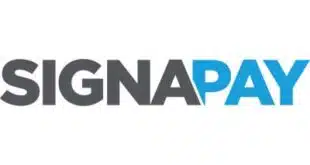Last year, Chime got in trouble with the regulators for marketing itself as a bank. At the time, industry observers responded with a lot of snark about how it didn’t matter to the end users whether or not Chime actually held a charter, so the regulators were being ridiculous.
This year, fintechs have started to run into trouble. And just like that, whether or not a fintech was actually a bank mattered again.
Two examples have brought this truth into sharp focus. The first is what has happened with Ahead Money, a digital wallet operated by the fintech LendUp Loans LLC of Oakland, Calif. The fintech ceased operations this year, but, based on press reports, it appears that LendUp has transferred the Ahead Money accounts to Kinly, another digital-wallet provider.
But, as Jason Mikula, a fintech consultant, reported, customers have complained that they have lost access to their funds. He wrote that his own Ahead Money account was closed without notification or a refund of his balance.
A second example is the bankruptcy of the cryptocurrency platform Voyager Digital Holdings Inc., of Toronto. Along with its cryptocurrency trading services, the company offered cash accounts to customers that were held at
Metropolitan Commercial Bank. When the company filed bankruptcy, it submitted a request to the court to protect the funds held in the cash accounts from being seized by the company’s creditors.
The company announced on Aug. 5 that its request had been approved and cash-account holders would soon be able to withdraw those funds.
In both instances, the deposits held at banks were insured by the Federal Deposit Insurance Corp. Customers may have believed that they were protected by the FDIC in case of a fintech failure. However, that insurance only covers customers when the bank fails. When that happens, the FDIC has procedures in place to ensure that depositors are made whole (at least up to $250,000).
But these two cases are new territory. Test cases don’t exist for reuniting depositors with their funds when the access layer of the fintech fails. This is one of the reasons the FDIC and its fellow banking regulators have been telling fintechs not to market themselves as banks unless they are. It’s also why they have been pushing fintechs to be clear about the extent of deposit-insurance coverage.
In May, the FDIC issued a final rule to explain how they would investigate claims about FDIC insurance. The rule put the industry on notice not to make false claims.
The recent failures and the FDIC rule should prompt fintechs and issuing banks to look at their contracts and make plans for what happens if something goes wrong at a fintech.
In fact, the issuing contract should contain provisions for what happens if there is a failure of the fintech, says Eli Rosenberg, an attorney with Baird Holm LLP. The banks and the fintech should discuss how depositors can access their funds and how the bank will take over providing that access. They should also have a communication plan in place that lays out continued access for customers in understandable language.
This is not only good business practice but can help to fend off some of the negative press for the issuing bank. Much of this should be made easier by the fact that, to qualify for pass-through FDIC insurance, the bank knows who the fintech’s customers are and how much they have on deposit.
When things are going well, it is easy to wave away technical details. But when trouble comes, these technicalities really do matter.
—Ben Jackson, bjackson@ipa.org





